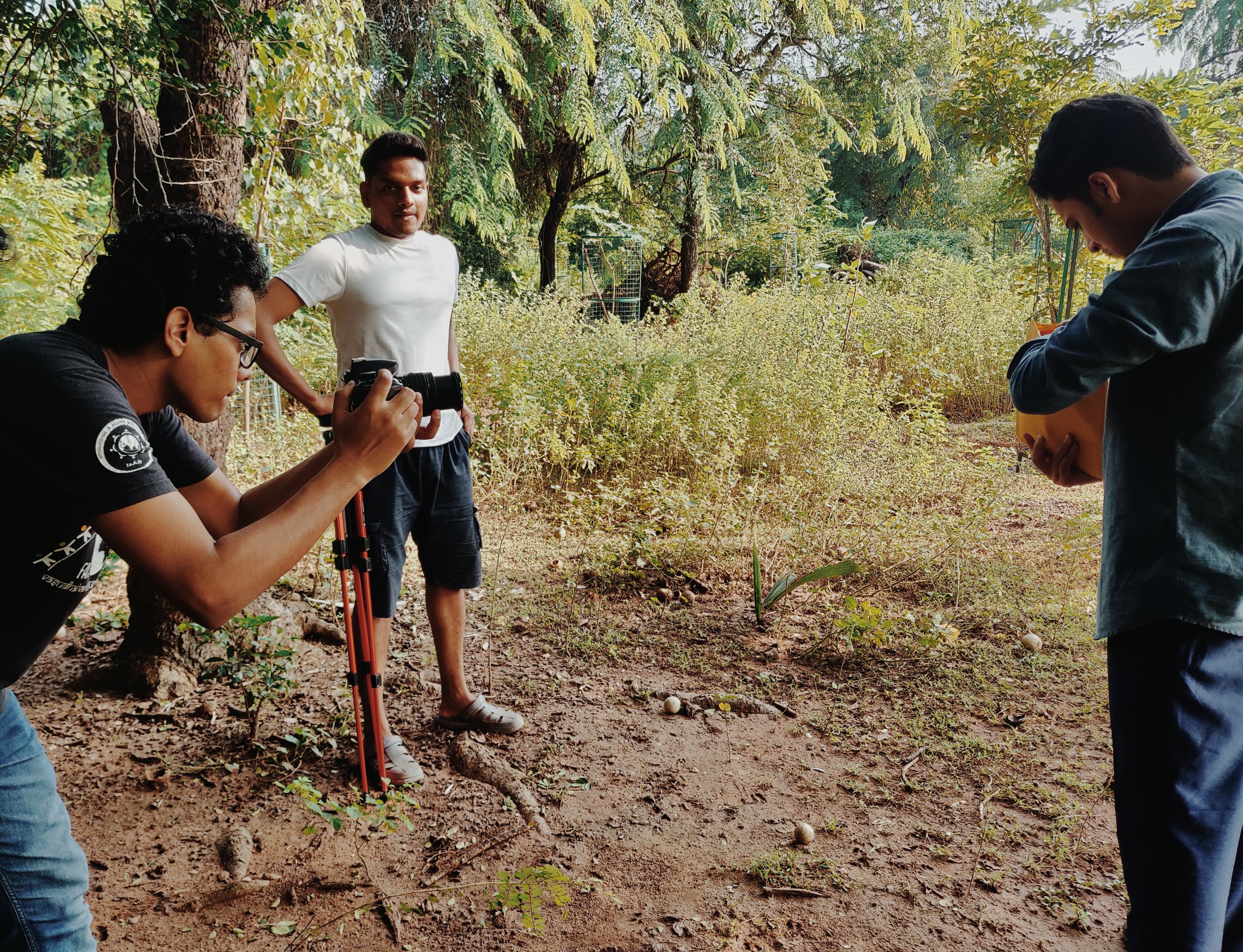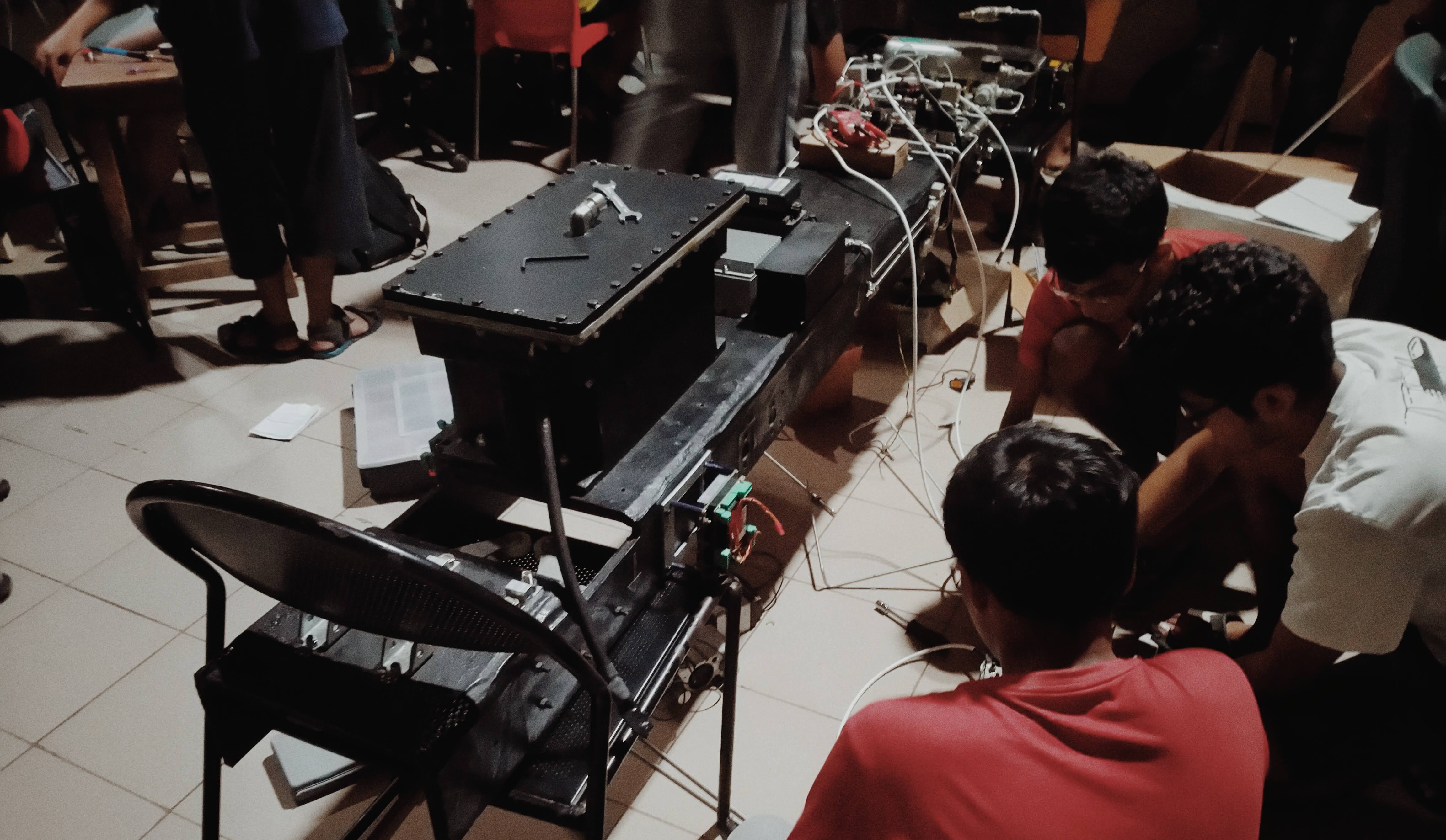In early December 2020, IIT-Madras reported a COVID outbreak when over 100 students and staff members tested positive for the virus [1]. The campus immediately went into lockdown, several facilities were shut down, and students were quarantined. Shortly after, students raised concerns about the quality of food being served and complained about finding foreign matter in it. Several news outlets also reported on the matter.
T5E reached out to the Hostel Affairs Secretary to shed some light on the issue and get a detailed account of the events that had transpired on campus.
T5E: During the recent rise in COVID cases on the campus, student residents were unhappy with the quality and quantity of food being served. Several disturbing reports and angry emails were also sent to address this. What was the reason for this?
Darwin: Students were quarantined for 14 days, and during this time, only a basic menu was provided for the first 2-3 days before reverting to the old menu. CCW office and DEAN’s office funded fruits and nutritious items like Badam every day. Food was packed and delivered to the students. A point to note here is that food couldn’t be custom packaged for a large number of students. Students became frustrated because of the said quantity issue, along with some legitimate quality issues. There were complaints that rice was not properly cooked and the curry was not tasty etc. Adding to this, outside food delivery wasn’t allowed, and students couldn’t go outside to restaurants and hotels, being quarantined. All of these caused complaints and frustrations among students.
Now coming to the complaints about finding worms and foreign bodies in the packed food; so the mess staff follow an extensive cleaning process. Under normal circumstances, vegetables are cleaned and cooked on a live basis because students dine in the mess from 7-9 am. But during this situation food had to be cleaned, cooked and packed before 6.30 and delivered to all the hostels by 8.30. The cleaning process takes 45 minutes, which had to be cut short during this time. Food was also kept out in the open for a longer time during this packaging process, which might have increased the odds of worms getting in. Packaging also increased the number of touchpoints by the staff than usual.
After several complaints about the quality of food Shakthi mess was blacklisted for 3 months.
T5E: There have been news reports that allege that one of the reasons for the rise in COVID cases occurred due to only a single mess being operational. Can you comment on this? How many messes are operational now?
Darwin: There were two messes operational on campus during the COVID time; SGR and Shakthi.
To provide some background: there were about 280-300 students in June. Students were being called back at a rate of about 50-60 per month, which increased to 100 incoming students per week around October end. Further, government guidelines stipulated that a maximum of only 120 persons could occupy a dining hall at a given instance. Therefore, when the number of students increased, a second dining hall was made functional, and a slot system was implemented for dining in the mess. Once the student population rose beyond 700, a third dining hall (in Vindhya) was also made available.
Despite opening up three dining halls and having a slot-based system, crowding became an issue because a large number of students came in at the same time. During these peak hours, there were more persons within the dining halls than was permitted. In several instances, students did not follow the given seating guidelines either.
Therefore, the crux of the problem at hand was that we hadn’t allocated time slots hostel-wise or department-wise and students from all hostels and departments came in contact with each other in the mess. And therefore, if one or two students from a particular hostel got infected, dining halls (along with labs and other places where restrictions weren’t very severe) became a place where chances of infection were higher. Therefore the creation and maintenance of bio-bubbles became of the utmost importance so that students from different groups didn’t mingle.
- What are the main safety protocols in the messes to ensure COVID guidelines?
Darwin: Currently, we have around 800 students on campus, and to prevent another outbreak, we’ve taken measures to reduce contact between students. We’ve allotted specific time slots to each student, and this mapping also includes allotting a specific table and seat to each student. In this system, we’ve allocated dining halls hostel-wise, and only 76 students are allowed to be present in a dining hall during a specific time-slot. The dining halls are also sanitized between each slot. In case a student misses their allocated slot, they are allowed to collect a packed meal after paying the additional packing charges.
T5E: A common complaint was also that the cost of food was increased while the quantity reduced. Is this true? If yes, what was the reason for this?
Darwin: Normally, we had plenty of options to satisfy all the different taste buds in the country. During the quarantine, initially, there were only 400 students on the campus, and we were forced to come up with a combined menu for this group, which was a mix of both South and North Indian. We tried to satisfy all students’ tastes’ with a single menu.
The problem arose when the caterers were expected to provide a more varied menu to a relatively smaller number of students. Under normal circumstances, when the caterers provide food to messes, it is observed that only 70-80% of students availing mess food actually dine in the mess. The caterers factor this into the cost quoted. However due to the COVID quarantine situation, 100% of the students were dining in the mess. Basically the prices were lower before due to the economy of scale. There was also the added problem of serving just 400 students in three different dining halls with a single caterer, whereas normally a caterer would be expected to serve 700 in a single dining hall.
The whole mess system became different for the caterers. We calculated an optimal amount for the food and hired a culinary expert and the cost came to around 145-150. Only SGR was able to provide a combined menu for a reasonable cost. Currently the cost for each student is 134 rupees.
I had also sent out a mail explaining the reason for the price hike in detail. The fact that there was a constant influx of students meant some students would miss out on these mails. This also led to some confusion amongst the students. From my observation, for the prices to come down, the strength of students would have to increase to 1500 so that they can be allocated to different messes and divided according to preferences, i.e, divided into North and South Indian menu messes with promised 600+ strength in each dining hall.
T5E: Another common complaint was that food delivery was banned inside the campus for a duration, and mess food was the only option available, which students allege was not enough – both quality and quantity-wise. When was this step taken? What was the reason behind this?
- Is food delivery allowed currently?
- What are the protocols in place for this?
Darwin: Food delivery was allowed initially, that is, before the outbreak. It was discontinued when the number of cases on campus shot up and lockdown was enforced. After the 14-day quarantine period, it was allowed again. The warden would collect the food from the gate and deliver it to each student.
Once quarantine ended, delivery persons were allowed to come in via the main gate (Adyar gate) up to Taramani guest house. Students had to go to this spot to collect their food. There were many complaints regarding this because Taramani and Velachery gate were closer to most of the restaurants and many delivery persons refused to go around to the main gate due to the inconvenience. Due to popular demand, students are now allowed to collect from Taramani gate as well.
Additionally, the system in place to prevent contact between hostellers and day scholars has been extended to the food delivery aspect as well. Every three days, there is a switch between the two groups in terms of access to labs. The group with access to the academic zone on a given day is also allowed to pick up delivered food from the Velachery gate.
T5E: What are the major logistical issues faced by the messes and hostel teams on campus?
Darwin: Initially, as students were gradually being allowed back on campus, we had to figure out how to allocate rooms and bathrooms in the hostel. At the start, it was decided that one student would be allotted one bathroom, just as with their rooms. Keeping this in mind, a maximum of only a thousand students can be accommodated. However, this was not a permanent solution, and we needed to create a system to accommodate more students. Therefore, we began sorting students into small clusters based on their department, and each cluster had to follow the government guidelines applicable to families. However, before we could finish planning and setting up this system, the outbreak occurred.
One of the main issues that we still face is in terms of mapping students with messes and hostels because we do not have hostel messes. Dividing the common messes among students is a difficult task. Mapping and creation of bio-bubbles was an issue in all aspects, including academic spaces, and therefore there were a lot of high-contact spaces that could have led to the outbreak. This is something we’re still working to improve.
T5E: How is social distancing enforced in the hostels, departments, and labs? What are the major COVID safety protocols?
Darwin: We followed general COVID protocols such as social distancing and restricting the number of people allowed in a certain area. We also tried to allocate a bathroom and toilet for each person. We sorted students according to their departments. Other colleges and institutions had messes in their respective hostels which is not the case for us. We had a common hostel making it difficult to divide and form clusters in the mess. It became complicated to map and follow all the contacts, and hence, movement within insti was restricted in order to control the outbreak. Along with this, sporting facilities and other recreational activities were stopped. With the current protocols in effect, the institute’s capacity to take in students is limited to thousand.
T5E: Is there a forum to address student concerns? Who and how can they reach out for efficient grievance redressal?
Darwin: I formed a task-force of volunteers from every hostel to help out since I’m not present on campus myself. I am also present in all the WhatsApp groups, and I address concerns directly using this platform. I have also circulated a google form to collect complaints and concerns.
However, it does become difficult to address concerns when students vent on email threads, some of which are also bcc-ed to the media. The crux of the matter is often lost in such emails, and we are not sure how or who to respond to. In such cases, I individually reach out to each person and try to understand their specific concerns.
T5E: The COVID vaccination drive has started across the country. Are there any plans/information you could share about students being called back to campus?
Darwin: It is under discussion. There are so many protocols that we need to follow. Because of this, the number of students to be called back is getting reduced. In the current state, it is not possible for students to share a double or triple room. What I think is the Administration should prioritize and call students accordingly. I guess the primary consideration will be for the final years. They are planning to increase the strength, but I have very little information regarding how it will be implemented. There are still a lot of uncertainties.
Design by Hardhik Pinjala
Edited by Anna Dominic
T5E would like to extend its gratitude towards the Hostel Affairs Secretary for his time and inputs.
Disclaimer: The above interview was conducted on 25th January 2021. All information provided is accurate up to this date and may be subject to change over the coming months. The views and opinions expressed in this article are solely those of the Hostel Affairs Secretary’s and do not necessarily reflect the position of T5E.




